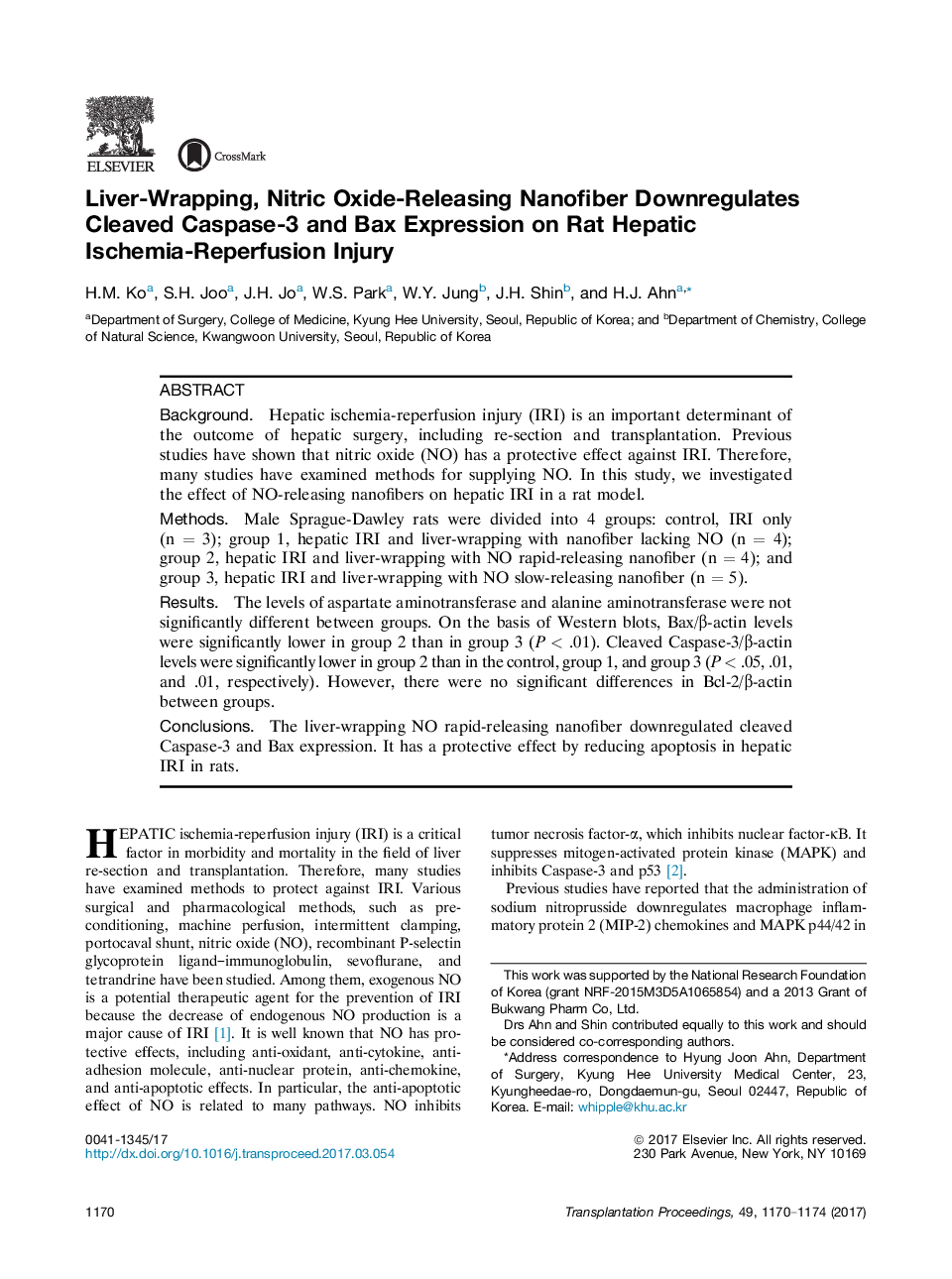| Article ID | Journal | Published Year | Pages | File Type |
|---|---|---|---|---|
| 5728822 | Transplantation Proceedings | 2017 | 5 Pages |
BackgroundHepatic ischemia-reperfusion injury (IRI) is an important determinant of the outcome of hepatic surgery, including re-section and transplantation. Previous studies have shown that nitric oxide (NO) has a protective effect against IRI. Therefore, many studies have examined methods for supplying NO. In this study, we investigated the effect of NO-releasing nanofibers on hepatic IRI in a rat model.MethodsMale Sprague-Dawley rats were divided into 4 groups: control, IRI only (n = 3); group 1, hepatic IRI and liver-wrapping with nanofiber lacking NO (n = 4); group 2, hepatic IRI and liver-wrapping with NO rapid-releasing nanofiber (n = 4); and group 3, hepatic IRI and liver-wrapping with NO slow-releasing nanofiber (n = 5).ResultsThe levels of aspartate aminotransferase and alanine aminotransferase were not significantly different between groups. On the basis of Western blots, Bax/β-actin levels were significantly lower in group 2 than in group 3 (P < .01). Cleaved Caspase-3/β-actin levels were significantly lower in group 2 than in the control, group 1, and group 3 (P < .05, .01, and .01, respectively). However, there were no significant differences in Bcl-2/β-actin between groups.ConclusionsThe liver-wrapping NO rapid-releasing nanofiber downregulated cleaved Caspase-3 and Bax expression. It has a protective effect by reducing apoptosis in hepatic IRI in rats.
